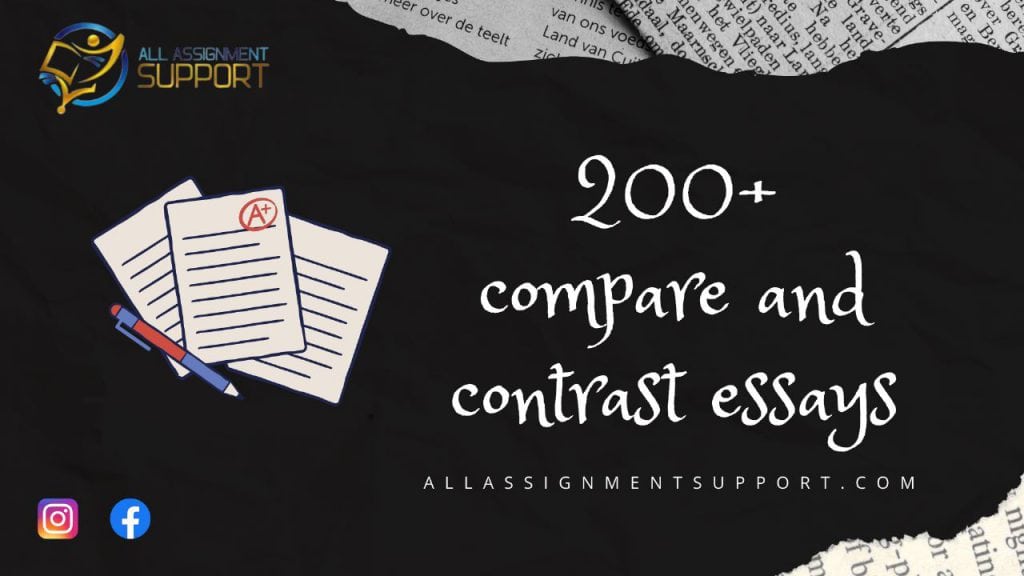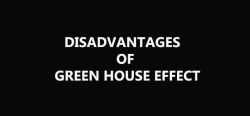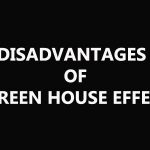Table of Contents
ToggleIntroduction
Compare and Contrast essays form a crucial part of academic writing wherein the student explores the different aspects of two or more subjects simultaneously. By comparison, the student reveals the similarities between two or more subjects, while, through contrast, the student identifies the differential aspects of two or more components.
When you choose topics of comparison, both issues belong to the same category, although they have minor differences. Say, for instance, you can compare two different kinds of movies or two different types of recipes! These essays enhance critical thinking, analytical abilities, and communication skills of students or writers. Choosing the right topic is essential, as it shapes the direction and depth of analysis.
Deeper meaning and conceptual understanding behind Compare and Contrast Essay topics
Compare and contrast essay ideas usually stem from a central focus point. The writer compares the importance and holistically derives the highlights of two similar objects. While on the other hand, the writer also subtly differentiates the vital points of differences between the objects drawn up for comparison. Here, the writer also explains the overall importance and implications of the analysis, drawing up meaningful insights between two similar objects.
Therefore, to draw up a valuable piece of content for a compare-contrast essay, the writer must draw up neat thesis statements explaining the meaning of both objects that are taken up for a comparative evaluation.
Compare and contrast essay topics are quite popular among college and University students. Professors usually allot this genre of essays among students to test their analytical skills and logical reasoning at a deeper level of understanding. This way, students pay closer attention to subjects they compare.
To write a good compare-and-contrast essay, one also requires more detail on the subjects chosen for comparison. Therefore, the student has to observe both subjects carefully. Then, they frame meaningful points of references and then draw up arguments or differences between two points of view.
How do you brainstorm similarities and differences?
Firstly, you must draw up two columns on your rough pad. Label the first column as ‘Similarities’ and the other as ‘Differences’. For example, you can compare and contrast ‘Oranges’ and Sweet Lemons’. Both ‘Oranges’ and ‘Sweet Lemons’ are rich sources of Vitamin C and grow from similar types of trees. Whereas, oranges are a little sweeter as compared to sweet lemons which have a mildly sour taste attributed to them. Therefore, orange juice is a direct source of glucose while sweet lemon juices are a little sweet-sour in nature. Although oranges and sweet lemons’ are similar fruits, you were still able to point out subtle differences between the two of them. This is how you brainstorm similarities and points of disagreement for compare and contrast essay topics.
Drawing up Venn Diagrams or using statistical charts or reports can also help students bifurcate ideas more precisely and comprehensively. In a nutshell, drawing up columnar diagrams highlighting the similarities and differences between two objects enables you to derive ideas and points of arguments breezy.
While it is easy to draw up differences between two things or issues of view, drawing up similar comparing pictures does require a deeper level of understanding of both the subjects that are taken up for comparison, on the whole.
How do you draw up the outline and structure for a Compare-Contrast Essay?
So, how do you structure compare-contrast essays? For a compare-contrast essay, the writer relies heavily on factual examples and realistic theory lines.
Therefore, here you require two outlining methods to deduce the essay. These two methods are as follows:
- The Block method
- A point-by point method of structuring.
Now, let us have a brief overview into each of them:
1. The Block Method
In the block method, you outline the specific characteristics and overall features of both the objects under consideration. You then outline comparative aspects or the similar aspects of the objects. Finally, you move on to draw up lines of differences between the two of them.
2. A Point-by-Point Method of structuring
As the name suggests, you derive the 1st point of comparison for Object A Vs Object B. You will simultaneously outline the first point of difference between both the objects that have been taken up for discussion. Similarly, you would cite the 2nd comparing point and the difference between both the subjects. Once you have derived all your comparing and contrasting arguments in a point-by-point manner, you frame a fitting Conclusion for your essay.
Let us know how a point by point method of structuring is done!
Example Thesis: The essay topic is Cars Vs Motorcycles. The thesis statement reads as ‘ Cars and motorcycles make for excellent means of transportation, but a good choice depends on the person’s lifestyle, finances, and the city they live in.
For a point by point level of structuring, you define the pros and cons of cars and motorbikes in terms of a person’s lifestyle for the 1st paragraph.
Body paragraph 1- Lifestyle:
Points for comparison for a motorbike
- Motorbikes are smaller in size and therefore require lesser storage space to park them in.
- Motorbikes are easier to learn as compared to cars
Contrasting pointers for Cars Vs Motorbikes are as follows
- Cars make a bigger impact as status symbols as compared to motorbikes. For instance, most people consider cars their second homes while such a degree of superiority is not given to motorcycles on the whole.
- Cars add to better memories for long drives
- Cars provide more leg space and are comfortable for passengers to sit in as compared to cramped spaces motorbikes provide to passengers while they are pillion-riding.
Body paragraph 2- Finances:
- Cars are more expensive than motorbikes. Say for instance, you can buy a motorcycle for under $300 while you may not be able to purchase a car for the same budget.
- Space parts are easier to fix for a motorcycle as compared to that of a car.
- Damaged spare parts require more expenses to replace in case of a car as compared to that of a motor-cycle.
Body Paragraph 3: City
- Cars are better to drive when you have wider roads.
- Motorcycles are preferred modes of travel on streets that have narrow roads.
- Cars are more comfortable to drive even when you want to travel out of the city
Hence, here you dissect your ideas in a point-by point manner.
Let us now look at how pointers can be drawn up for a Block Method:
Body paragraph 1: Motorcycles
Aspect 1 Lifestyle:
Motorcycles are smaller in size and require lesser garage spaces.
Aspect 2- Finances:
You can avail motorcycle spare parts for under $300.
Aspect 3- City
Motorcycles make convenient options for riding on narrower roads
Body Paragraph 2: Cars
Aspect 1- Lifestyle:
Cars are considered as a status symbol next to homes.
Aspect 2- Finances:
Cars are more expensive and spare parts to replace for cars remain costly too.
Aspect 3- City
- Cars can be driven safer and comfortable on city roads
- Cars cause fewer accidents while they are driven on wider roads
- Cars make lovable options to drive outside of city too.
In a block method, we describe the features of motorcycles in terms of its comparing and differentiating aspects first. We then tackle pointers for cars in a separate paragraph.
Usage of transitive verbs throughout the essay
For a typical compare-contrast essay, you must present tabular facts and figures throughout the essay. As you compare objectives that are similar in nature and you differentiate objectives that are contrasting between one another, you must use a liberal number of transitional phrases to prove points on the essay.
For comparing objectives these are the transitive words that you can use:
- Similarly
- Likewise
- As same as
- Also
- This is similar to
This way, you draw up points of comparison for likeminded characteristics between the given objects.
Contrasting verbs for transition
While contrasting or differentiating ideas or thoughts between the given subjects, these are the transitive verbs or phrases you can use:
- In comparison to
- While
- Whereas
- But
- This is dissimilar to
- Apparently
- Contrastingly
Usage of proper transitional words also helps readers navigate from one section of the essay to another in a seamless manner.
Showing evidences in a fool-proof manner
Good compare-contrast essays use solid evidence or proofs to explicitly display viewpoints. You can cite examples from newspapers, magazines, scholarly articles and even web-based resources to prove your points of view authentically and credibly.
For example, the article reads like this: Campus learning vs. distance learning, you can cite your personal experiences on how long it takes to commute from your home to the College and back. If you had taken up classes online, you could cite your personal experiences on how convenient it was to take up your learning sessions from the Internet. Citing personal experiences also adds a certain degree of validity to prove your essay’s points authentically.
Discover Compare and Contrast examples
In this segment, we are going to have a look at how compare-contrast examples are done interestingly. Let us do the role-play in the form of a real time example:
Case study 1- To examine the cultural differences between two countries- United Kingdom Vs China
As you have already be aware of, different countries have different cultural norms and practices that impact their society’s overall lifestyle and development. In this aspect, a cultural enthusiast named Geert Hofstede came up with a 6-dimensional pyramid by which cultural differences between different countries and economies can be measured. He said that this cultural 6-step theory clearly establishes different parameters based on which a community’s behavior and cultural practices differ from that of another. He says there are 6 main factors that distinguish people from one country from that of another. These are:
- Long-term orientation
- Individualism
- Distance relationships
- Luxuries and personal indulgences
- Norms and practices that the economy typically avoids
- Gender disparity
Based on these 6 parameters, let us move on compare and contrast the economies that are prevalent at the United Kingdom and China.
Here, the writer clearly states his objectives or parameters based on which points of comparison and contrasting ideas are going to be drawn up. The structure or anchor point for this compare-contrast essay has been built in a thorough manner.
Case study 2- Organic Vs Non-organic foods
It is to be noted that the demand for organic foods has increased so much as compared to the demand you have for inorganic foods. This is mainly because consumers spend a significantly more proportion of their income in purchasing organic foods over that of inorganic foods. In the US markets, there is an increase of 10% in sales during the years 2014 and 2015. As a matter of fact, consumers prefer organic foods as they are safer, tastier and healthier. The detrimental environmental effects organic foods have, weigh lesser impact as compared to inorganic foods. By definition, organic foods are ones that are grown without the use of artificial supplements. Here, manufacturers do not genetically manipulate the growth of foods by including hormones or antibiotics. Let my essay draw up more interesting compare-contrast factors with respect to Organic Vs Inorganic foods.
In this example, the writer ignites the spark of the audiences by including statistics and interesting facts on organic foods. He clearly cites why people should not be promoting artificially grown foods or meat products. The anchor points are well connected in the Introduction or Thesis paragraph and the student can tabulate the above mentioned pointers in a more elaborate manner via body paragraphs to conclude the essay in a fitting and compelling manner.
How do you choose interesting Compare-Contrast Essay topics?
Compare-contrast essay topics have to be chosen in a highly audience-engaging manner. This is mainly because these essays are not tell-tale stories you want to tell your audiences. The reports are compiled based on real-life scenarios and everyday lifestyles of audiences who like to get practical insights by reading your essay content.
Therefore, you must choose topics backed by statistical figures and scientific factors rather than including fictional spin stories out there.
Let us have a look at six main parameters on how to choose exciting topics that cover the Compare-contrast genre:
1. Locating current topics
As an exam setter or a paper-setter, you must look for current topics that are trending on the internet. The audiences want to know about gripping issues they face concerning their choice of education, lifestyle preferences and so on. Henceforth, compare-contrast essay topics must be based on current affairs, and we do not want fictional spin out there.
2. Topics that focus on specialization
Choosing topics must belong to a specialization genre. You want your essay writers to specialize in the subjects they wish to write about. This way, when you allow your students to write on topics they are passionate about, they will put more focus and effort while they frame content.
Using opinion polls, you can figure out topics your students specialize in. Based on the poll results, you can try curating suitable issues that cover the compare-contrast genre!
3. Argument driven essay topics
Choosing argument-driven essay topics is what the examination evaluators must look for. Therefore, you must have sufficient issues that give ample scope for students to argue from both points of view holistically and engagingly.
Arguments must also be supplemented with reports, tally figures and validation info that support opinions or your points of view. Choosing topics that can promote healthy debating among student writers is what University authorities can go in for.
4. Avoid topics that lack depth and scope of understanding
You can avoid topics that lack depth and scope of understanding. The issues that allow spin stories are not what students are looking for. You must provide your audiences with well-compiled and gripping content, too. Therefore, you must typically avoid those topics that lack depth and scope of understanding.
5. Compelling summaries are must haves
You must be looking for topics that evolve compelling summaries or concluding lines. After carefully analyzing each argument based on its pros and cons, the student must summarize the component effectively. The concluding lines or fitting summary lines can create long-lasting impressions on the minds of your audiences.
Compare and Contrast Essay Topics
Now let’s delve into the exciting list of 200 compare and contrast essay topics. These topics cover a wide range of disciplines and interests, providing ample options for students to choose from:
- Online Education vs. Traditional Education
- Public Schooling vs. Homeschooling
- Working Remotely vs. Working in an Office
- Digital Marketing vs. Traditional Marketing
- Formal Attire vs. Casual Attire
- Facebook vs. Twitter
- Veganism vs. Vegetarianism
- High School vs. College
- Urban Living vs. Rural Living
- Fictional Books vs. Biographies
- Democracy vs. Autocracy
- Mobile Phones vs. Personal Computers
- Ancient Greece vs. Ancient Egypt
- Freelancing vs. Full-time Employment
- Renewable Energy vs. Non-renewable Energy
- Single Life vs. Married Life
- European History vs. Asian History
- Capitalism vs. Socialism
- Novels vs. Movies
- Traditional Art vs. Digital Art
- Indoor Activities vs. Outdoor Activities
- Democracy vs. Monarchy
- Email Communication vs. Written Letters
- Mac vs. PC
- Psychology vs. Sociology
- Science Fiction vs. Fantasy
- Classical Music vs. Jazz
- Traditional Medicine vs. Modern Medicine
- Online Dating vs. Traditional Dating
- Organic Food vs. Conventional Food
- Winter Sports vs. Summer Sports
- Android vs. iOS
- Public Transportation vs. Private Transportation
- Classical Dance vs. Contemporary Dance
- Social Media vs. Traditional Media
- Western Culture vs. Eastern Culture
- Online Gaming vs. Console Gaming
- Traditional Wedding vs. Destination Wedding
- Democracy vs. Communism
- Urbanization vs. Suburbanization
- Classical Physics vs. Quantum Physics
- The Beatles vs. The Rolling Stones
- Traditional Sports vs. Extreme Sports
- Nature vs. Nurture
- Traditional Education vs. Vocational Education
- Fiction vs. Non-fiction
- American Football vs. Soccer
- Heterosexual Marriage vs. Homosexual Marriage
- Virtual Reality vs. Augmented Reality
- Fast Food vs. Home-cooked Meals
- Western Literature vs. Eastern Literature
- Romantic Comedy vs. Action Movie
- Online Streaming vs. Cable TV
- Ancient Rome vs. Ancient China
- Environmental Conservation vs. Economic Development
- Cats vs. Dogs as Pets
- Modern Art vs. Contemporary Art
- Globalization vs. Localization
- Urban Decay vs. Urban Renewal
- Classical Ballet vs. Hip Hop Dance
- Democracy vs. Dictatorship
- Traditional Games vs. Video Games
- Gender Equality vs. Gender Equity
- Science vs. Religion
- Traditional Marriage vs. Arranged Marriage
- North America vs. South America
- Coffee Shop vs. Tea House
- Traditional Medicine vs. Alternative Medicine
- Modern Technology vs. Traditional Methods
- Adventure Travel vs. Relaxation Travel
- Public Libraries vs. Digital Libraries
- Urban Gardening vs. Rural Farming
- Rock Music vs. Pop Music
- Online Communication vs. Face-to-Face Communication
- Traditional Clothing vs. Modern Clothing
- Genetic Engineering vs. Natural Selection
- Online Banking vs. Traditional Banking
- Basketball vs. Football
- Nature vs. Technology
- Traditional Society vs. Modern Society
- American English vs. British English
- Fast Fashion vs. Sustainable Fashion
- Democracy vs. Theocracy
- Traditional Art vs. Street Art
- Fine Arts vs. Performing Arts
- Public Schools vs. Private Schools
- Traditional Music vs. Modern Music
- Space Exploration vs. Ocean Exploration
- Indoor Plants vs. Outdoor Plants
- Traditional Sports vs. E-sports
- Renewable Energy vs. Nuclear Energy
- Online Communication vs. Offline Communication
- Traditional Work Hours vs. Flexible Work Hours
- Classical Literature vs. Contemporary Literature
- Global Warming vs. Climate Change
- Western Philosophy vs. Eastern Philosophy
- Traditional Marriage vs. Civil Partnership
- Traditional Sports vs. Extreme Sports
- Virtual Reality vs. Augmented Reality
- Online Streaming vs. Cable TV
- Ancient Rome vs. Ancient Greece
- Modern Art vs. Contemporary Art
- Traditional Shopping vs. Online Shopping
- Environmental Conservation vs. Economic Development
- Cats vs. Dogs as Pets
- Classical Ballet vs. Hip Hop Dance
- Democracy vs. Dictatorship
- Traditional Games vs. Video Games
- Gender Equality vs. Gender Equity
- Science vs. Religion
- Traditional Marriage vs. Arranged Marriage
- North America vs. South America
- Modern Technology vs. Traditional Methods
- Adventure Travel vs. Relaxation Travel
- Public Libraries vs. Digital Libraries
- Urban Gardening vs. Rural Farming
- Rock Music vs. Pop Music
- Traditional Clothing vs. Modern Clothing
- Genetic Engineering vs. Natural Selection
- Online Banking vs. Traditional Banking
- Basketball vs. Football
- Nature vs. Technology
- Traditional Society vs. Modern Society
- American English vs. British English
- Fast Fashion vs. Sustainable Fashion
- Democracy vs. Theocracy
- Traditional Art vs. Street Art
- Fine Arts vs. Performing Arts
- Public Schools vs. Private Schools
- Traditional Music vs. Modern Music
- Space Exploration vs. Ocean Exploration
- Traditional Sports vs. E-sports
- Renewable Energy vs. Nuclear Energy
- Traditional Work Hours vs. Flexible Work Hours
- Classical Literature vs. Contemporary Literature
- Global Warming vs. Climate Change
- Western Philosophy vs. Eastern Philosophy
- Traditional Marriage vs. Civil Partnership
- Urban Living vs. Suburban Living
- Coffee vs. Tea
- Nature vs. Nurture in Child Development
- Traditional Education vs. Montessori Education
- Democratic Leadership vs. Autocratic Leadership
- Traditional Medicine vs. Western Medicine
- Jazz vs. Blues Music
- Traditional Dance vs. Modern Dance
- Renewable Energy vs. Fossil Fuels
- Traditional Wedding vs. Destination Wedding
- Traditional Art vs. Digital Art
- Democracy vs. Monarchy
- Traditional Holidays vs. Modern Celebrations
- Fictional Books vs. Non-fiction Books
- Organic Food vs. Processed Food
- Nature vs. Nurture in Personality Development
- Traditional Media vs. Social Media
- Classical Music vs. Rap Music
- Western Culture vs. Eastern Culture
- Paper Books vs. E-books
- Traditional Medicine vs. Alternative Medicine
- Urban Living vs. Rural Living
- Mac vs. PC
- Traditional Sports vs. Motor Sports
- Traditional Work vs. Freelancing
- Android vs. iOS
- Cats vs. Birds as Pets
- Classical Literature vs. Modern Literature
- Public Transportation vs. Private Transportation
- Traditional Art vs. Contemporary Art
- Physical Books vs. Audiobooks
- Democracy vs. Socialism
- Traditional Family vs. Single-Parent Family
- Urbanization vs. Suburbanization
- Classical Music vs. Country Music
- Western Movies vs. Eastern Movies
- Traditional Marriage vs. Cohabitation
- Desktop Computers vs. Laptops
- Traditional Communication vs. Digital Communication
- Traditional Sports vs. Water Sports
- Nature vs. Nurture in Intelligence
- Traditional Agriculture vs. Organic Farming
- PC Gaming vs. Console Gaming
- Traditional Writing vs. Typing
- Ancient History vs. Modern History
- Democracy vs. Communism
- Traditional Art vs. Graffiti
- Traditional Sports vs. Martial Arts
- Handwritten Letters vs. Emails
- Macroeconomics vs. Microeconomics
- Traditional Storytelling vs. Digital Storytelling
- Traditional Fitness Programs vs. Online Fitness Programs
- Traditional Politics vs. Digital Activism
- Traditional Fashion vs. Vintage Fashion
- Traditional Food vs. Fast Food
- Reality TV Shows vs. Scripted TV Shows
- Introverts vs. Extroverts
- Traditional Publishing vs. Self-Publishing
- Dogs vs. Cats as pets
- Single Life vs. Married Life
- Traditional Agriculture vs. Sustainable Agriculture
- Traditional Gender Roles vs. Gender Equality
Summarizing lines to Remember
We have seen several end-to-end aspects of how compare-contrast essays must be drawn up. The outlining and structural methods for framing a pyramid for these essays have been explained in depth. The nuances of how starting paragraphs must be done have been illustrated via real-life example topics.
The essential techniques you must follow while choosing compelling topics under the compare-contrast genre have also been explained at length. With this, we end this online segment on how compare-contrast essay topics can be chosen in a highly compelling and audience-engaging manner.
Frequently Asked Questions
1. How do I benefit from writing Compare-contrast essay topics?
Answer: By writing compare-contrast essays, you improve your analytical and logical thinking skills. Here, you must draw up fitting points of comparison and differentiate aspects that are contrastingly opposite. In a nutshell, you must simultaneously compare-and-contrast between two similar objects that the essay curator has placed in front of you.
2. Do I have a service provider who can help me write essays in a compelling manner?
Answer: You do have a service provider who can provide you with the right kind of impetus and inspiration you need for drawing up compare-contrast essays in a flawless manner. This is All Assignment support, and you can arrive at our landing page via our website: https://us.allassignmentsupport.com/
We deal with all forms of academic writing, summer internships, assignment compiling, thesis dissertations and project work collecting for graduate and postgraduate students. Our pool of writers is Ph.D. holders with solid experience in a specialized field. Therefore, you can have a customized approach tailor-made to suit your requirements on any type of writing.
3. How can I improve my grades while writing compare-contrast essays?
Answer: As a student, you must provide an entire length thesis paragraph. This way, you tell your audiences what your standpoint point concerning the subject you have for comparison or contrast.
The body paragraphs must be well-compiled with supporting arguments and validations. Here, you can include external citations from literary works or web-based resources to provide a better degree of depth and credibility for your essays.
Above all, you must provide your audiences with mind-provoking concluding lines or summaries drawn up in tandem with what you have tried explaining to your audiences all the while.
4. Can you suggest some of the more debatable topics that cover Compare-Contrast Essays?
Answer: These are some of the better topics that cover a comprehensive scope of discussion for a Compare-Contrast essay.
- Modern Medicine Vs Traditional Medicine
Here the writer explains the overall advancements that have been achieved in the Medical field towards treatments of varied diseases or ailments known to human kind. Alongside, you must evaluate the pros and cons of Modern Medicine Vs Traditional medicine and then deduce which out of the two is a better option.
You can also cite numerous examples over how traditional medicines prescribed from Ayurveda or Homeopathy have helped people get rid of medical disorders over English medicines.
- Bulimia Vs Aneroxia:
The Writer clearly examines both the cases via a compare-contrast model and deduces how each of them are equally bad in reducing the overall immune power of your body’s metabolism and then educates the audiences why you should adapt to a more healthy way of living.
5. What are some of the tips you must apply while writing a compare-contrast essay?
Answer: The concluding paragraph is what is known as the Summarizing paragraph. Compare-contrast essay topics are semi-opinionated essay genres. Here, you draw up lines of comparison between two given objects, and then frame contrasting differences between the two of them.
Here in the Summary paragraph, you must tell your audiences why Object A scores precedence over Object B or vice-versa. In other words, you explain to your audiences as to why you feel that out of the two, you choose one of them as a better option. Your deciding lines of verdict must cover your Summarizing lines.
Here are a few general guidelines as to how you can achieve the same in a seamless manner:
- Do not start a new pointer on a Summarizing or a Conclusive paragraph. You have already given your audiences brainstorming ideas while you compare and contrast between the given set of objects. Therefore in a concluding paragraph, you must come to a Conclusion and not confuse your audiences.
- Have mind provoking lines to educate your audiences as to why one scores better over the other. Therefore, you must keep your lines simple for a Summary paragraph and there is absolutely no need to re-iterate those pointers that have already been discussed via your body paragraphs. Beating around the bush confuses the audiences which stand you are on.
- Use the key words ‘Upon a compare-contrast analysis of Object A Vs Object B, I feel the advantages of Object B is better over that of the former as I have given several reasons as to why my option is the better one’.
When you use essay-specific key words, you direct your audiences to the main genre of essay that you are talking about.
6. What are some of the suggestions for proof reading your essay?
Answer: You can make use of internet-aided tools to help you proof read your essay better. You can make use of Grammarly Premium to run through grammatical errors that may be visible on your essay.
You can use AI tools to scan through traces of plagiarism or AI that may pertinently be present on your essay. By proof reading your essay thoroughly, you bring a better degree of originality or authenticity to your essay.
7. Why is it important to clarify concepts in an essay?
Answer: It is important for you to clarify concepts in an essay as you do not want to go on a Merry-go-round drive with your audiences. You must cite authentic pointers that are validated with facts and figures while you aim to present your essay. This way, you add a better value to your growing audiences over leaving them confused over why you were writing this essay in the first place.
Therefore, it is always better to clarify with your professors or lecturers over the kind of pointers that are desirable to cover, with respect to the main content of the essay. This way, you are saved from the trauma of rewriting your essay several times before your first draft gets finalized into the original draft that you may have to submit to your University or College authorities.
8. What types of evidences should be used to support arguments in an essay?
Answer: Scholarly articles from books or literary resources can be cited while you support arguments in an essay. You cannot be biased over your point of view. Your explanations with respect to a certain ideology must be well-tabulated through facts and figures. Web links can also be cited for establishing a degree of authenticity to your essay pointers.
In a nutshell, you must include web-based as well as literary resources from books or journals, while you want to cite evidences that cover the main content of your essay.
9. How can Compare-contrast topics be applied to various topics?
Answer: Let me give you a real time example here. When you go to Mc Donalds, you choose between French fries and salad bowls. You evaluate the health benefits of both and you prefer ordering a salad bowl as it is more nutritious for your health over having French fries that is laden with junk calories. This is a simple and a realistic example how you apply a compare-contrast model to decide between two options.
Therefore, you can apply compare-contrast model of choosing one medicine over the other. You can use the method to choose between two FMCG brands. You can use the same model to decide between two Universities to choose which one of them is better. Therefore, the compare-contrast model of deducing stuff can be applied to various topics under the sun.
10. Why are Compare-contrast essay common among College and University students?
Answer: Compare-Contrast essays are common preferences for College and University students as professors have the flexibility to choose or apply the formula covering a multitude of topics.
Say for instance, you can include Compare-contrast model for medicine, education, lifestyle, real estate, beauty concepts, therapies, and varied other genres that cover the day-to-day lifestyle of humans. Therefore, this model is preferred over other genres of essays.











